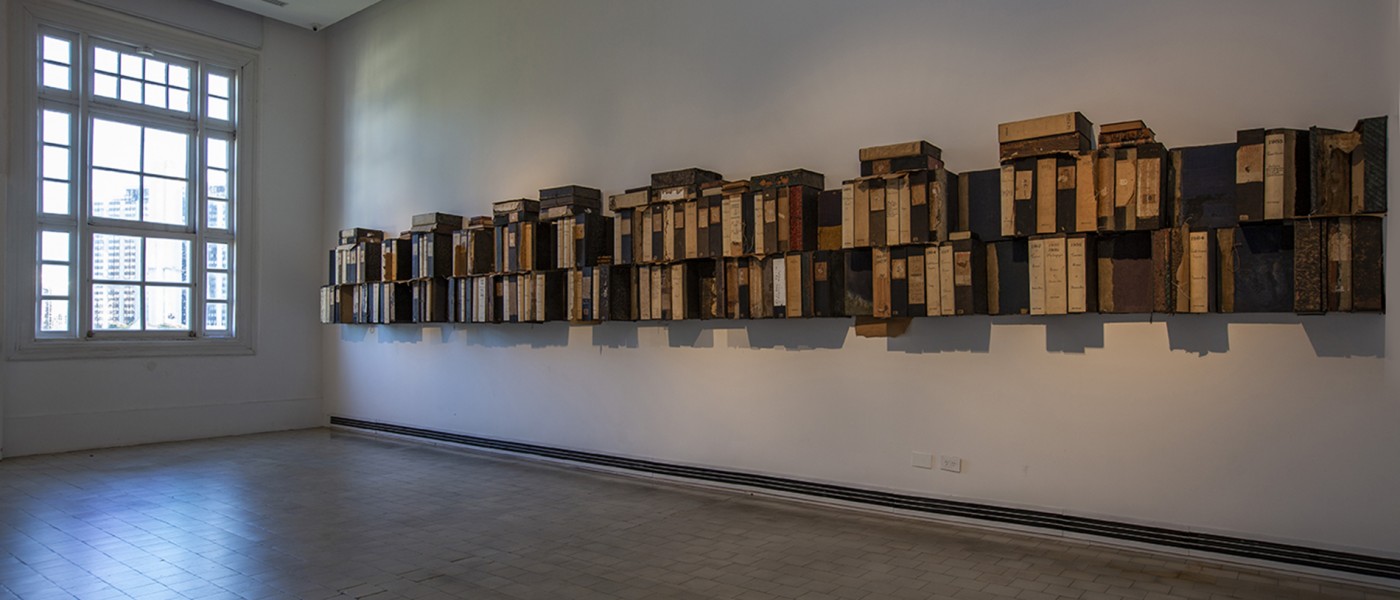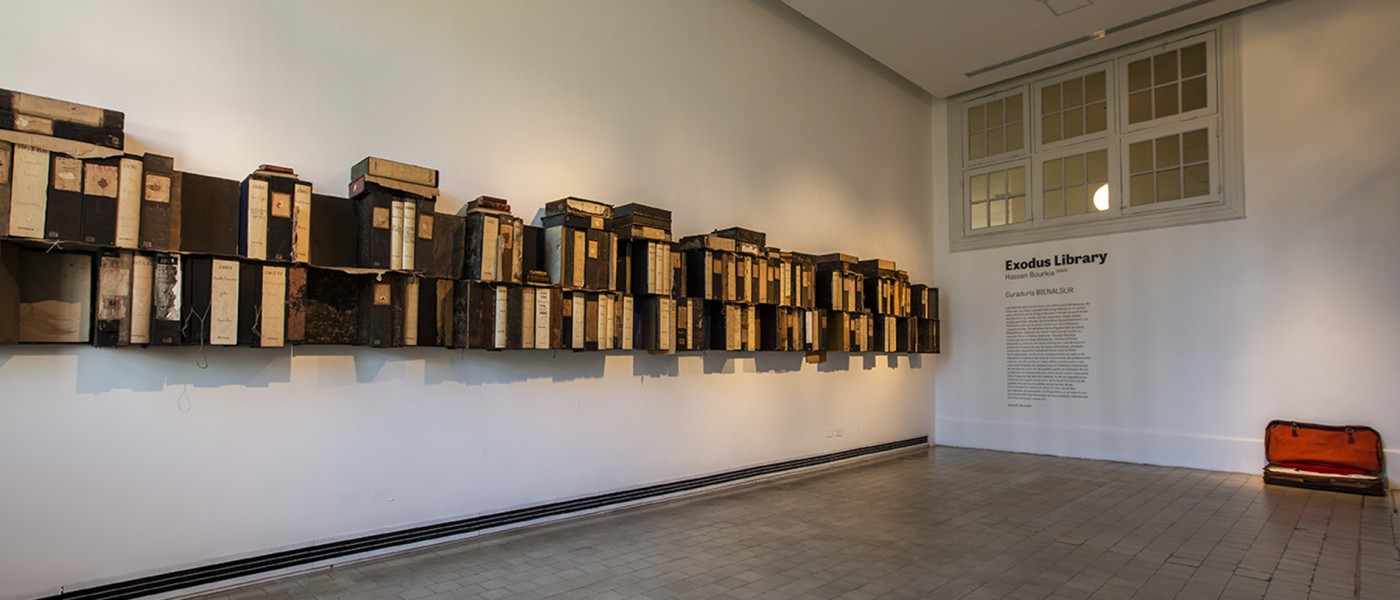Libraries and archives are silent repositories of history; stories, secrets and enigmatic presences which never fail to pose questions guiding us towards the possibility of deciphering the key behind the way they are organized. These may even be clues to unlocking the processes of thought and the cultural horizons of those responsible for building the library or organizing that archive.
Using the singular nature of these devices, designed to bring together collections of books, papers, photographs and all kinds of different objects, Hassan Bourkia builds his own libraries, inventing archives which evoke a specific dimension with each installation. Exodus is one such repository, designed especially for the Hotel de Inmigrantes, which alludes in its configuration not only to migration and transit but also to the movement of entire populations. Exodus harks back to the Biblical story as well as to the forced marches of populations and ethnic groups throughout history, such as that of the people of the province of Jujuy, who withdrew during the struggles for independence in response to the onslaught of the royalist forces. Or the Republicans who abandoned Spain at the end of the Civil War, or the Syrians in today’s Middle East, to mention but a few. This installation places squarely at Km 0, the arrival point for millions of people disembarking in Argentina, a project which explores a multifaceted dimension embracing different times and spaces through its multiple references.


